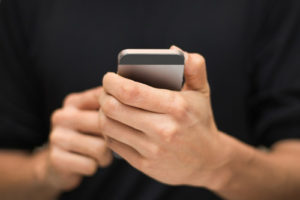4 Ways your Media is Making You Less Social – and what to do about it!

Your phone is probably the one thing you’d never leave home without. It’s your alarm clock, personal assistant, dating wingman, instant encyclopedia, and so much more. Research has shown that teens feel more connected to friends and receive support during hard times by staying close to their phone.
Yet some of the biggest names in the entertainment world – from Iggy Azalea to Ed Sheeran to Demi Lovato – have recently taken a break from electronics and social media due to the stress of nonstop feedback and criticism. Even teens out of the limelight aren’t immune from the harm of being stuck to electronic devices.
Here are some signs that you should log off:
- If you’re feeling picture-perfect pressure. Despite the popularity of #nofilter and clean-faced selfies, many teens still feel the need to only show the best version of themselves online. Whether the pressure is from friends, bullies, or even parents to show that you are totally together, this pressure can make it hard to be authentic. It might also delay or prevent you from reaching out for help or support when you need it.
- If you’re missing important memories. One research study showed that when students took pictures to remember a certain event, they recalled it much less than those who simply observed the event and made a mental image. So even though it’s really exciting to get the shot of Nick Jonas mid-moonwalk, you might have trouble telling your friends about it later.
- If real life is becoming overwhelming. Being glued to your hand-held device can make it easy to avoid being connected to the present, especially if interacting in real-life situations feels uncomfortable. However, since fears are best overcome when faced, you could be missing a chance to grow. Meanwhile, social media could be giving you a front-row seat to more things that might cause you stress, such as bullying or drama between friends. Teens often overestimate the time they spend online, perhaps because its effects last much longer after you power down for the night.
- If your media starts to control you. While “internet addiction” is not an official diagnosis, the effects of media overuse can have similar effects. When your electronic use starts to get in the way of your school or work performance, changes your sleep or eating habits, makes you act more impulsively, or if it makes you feel irritated to be away from your phone, these are serious signs that you should limit your online time.
Here’s what you can do if you find yourself needing a break from your online life:
- Monitor your phone and internet use. Ironic as it may seem, if you want to use your phone less, there’s an app for that! Applications such as RescueTime can tell you how much time you spend using certain programs, or using electronics in general. This can help you decide what you should cut back on.
- Make a phone-free zone. Research shows that conversation between friends is less meaningful when there’s a phone out on the table. So keep your phone in your purse the next time you’re out with the people you love. You might even set up a friendly bet that whoever takes their phone out first has to pay the bill!
- Practice mindfulness. This Zen practice is getting a lot of buzz lately, for good reason – it can help soothe our emotions and help us feel more relaxed in the moment. Practice being a full participant in your experience instead of being tempted to check your phone. If you find yourself being stressed by real-world interactions, try taking deep breaths or improving the moment with positive self-talk.
Good luck and power off!
– Kimberly

